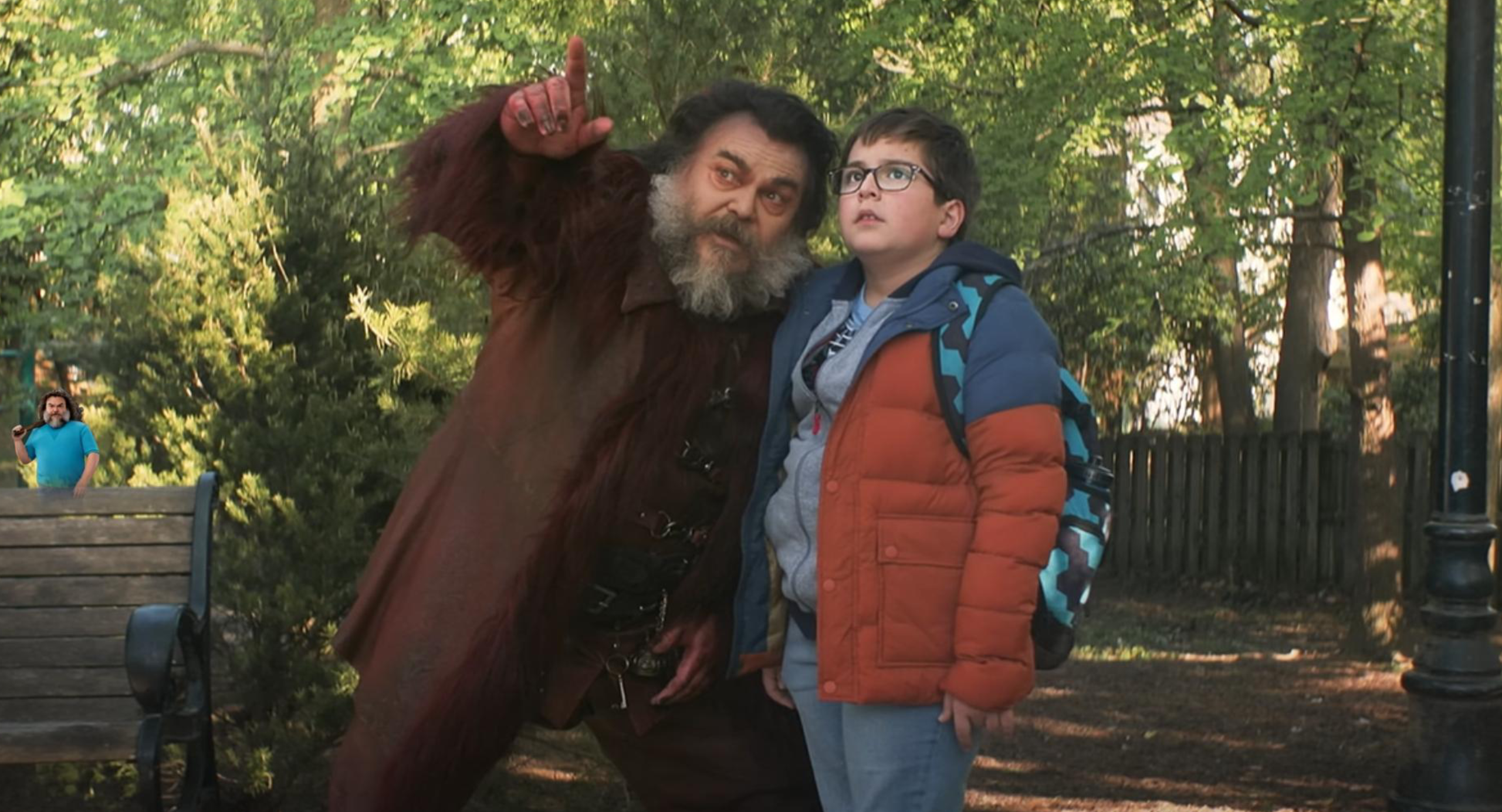Dear Santa – Film Review
Published December 1, 2024

Bobby Farrelly’s Dear Santa is a quirky Christmas comedy that dares to blend the holiday spirit with a dose of mischief, courtesy of a diabolically hilarious performance from Jack Black as Satan. With a unique premise, a spirited young lead, and a solid comedic ensemble, the film delivers a holiday treat that’s equal parts heartwarming and absurd. However, it stumbles in its tonal juggling act, sometimes losing focus amidst its ambition.
At its heart, Dear Santa is a coming-of-age story about Liam Turner (Robert Timothy Smith), a dyslexic sixth-grader navigating grief, social challenges, and his family’s strained dynamics after the loss of his brother. The plot takes a sharp detour into fantastical territory when Liam’s misspelled Christmas letter summons Satan instead of Santa Claus. What follows is a hilariously bizarre and surprisingly poignant journey as Liam tries to balance his newfound “wishes” with the growing complications in his life.
The premise is undeniably creative, giving the film a fresh edge in a genre often inundated with formulaic offerings. The interplay between Liam’s naivety and Satan’s wry, self-serving humor sets the stage for many of the film’s comedic highlights. Bobby Farrelly’s direction keeps the pace lively, and the movie’s festive backdrop contrasts amusingly with Satan’s darker, more irreverent presence.
Jack Black is the undeniable star of the show. His portrayal of Satan as a cunning yet strangely likable character is a comedic masterstroke. Black leans into his signature blend of over-the-top energy and surprising sincerity, creating a character who is both the devil and a strangely endearing mentor. His banter with Liam offers some of the film’s most memorable moments, toeing the line between heartfelt and ridiculous.
Robert Timothy Smith brings a grounded and earnest quality to Liam, making him a sympathetic and relatable protagonist. His portrayal captures the awkwardness and vulnerability of a boy caught between his insecurities and the weight of his family’s grief. Smith’s chemistry with Black ensures their dynamic feels genuine, anchoring the fantastical story in an emotional reality.
Keegan-Michael Key and Ben Stiller round out the comedic ensemble with smaller but impactful roles. Key’s turn as the child psychologist Dr. Finkleman provides a satirical commentary on adult attempts to rationalize children’s fantasies, while Stiller’s brief appearance adds an extra layer of comedic gravitas to the film’s hellish subplot.
Dear Santa juggles a variety of tones, oscillating between slapstick humor, heartfelt drama, and moments of holiday magic. At its best, this mix creates a unique, genre-bending experience that keeps viewers engaged. The scenes where Liam tries to navigate schoolyard crushes or repair his fractured family are genuinely touching, offering a grounded counterbalance to the film’s zanier moments.
However, the tonal shifts aren’t always seamless. The movie occasionally struggles to reconcile its darker elements with its family-friendly aspirations. For instance, Satan’s motivations, while comical, can feel out of place in the more earnest moments. Similarly, the subplot involving Liam’s parents’ marital issues sometimes feels underdeveloped, detracting from the central narrative.
The film’s humor is where it shines brightest. Jack Black’s antics, paired with Liam’s earnestness, create a delightful comedic contrast. Highlights include a chaotic cameo from Post Malone and Satan’s misguided attempts to play the role of Santa Claus. The humor is often absurd, leaning into Farrelly’s trademark style, but it rarely undermines the story’s emotional core.
Beneath the laughs, Dear Santa has an earnest message about resilience, self-acceptance, and the importance of family. Liam’s journey of self-discovery and his eventual realization that he doesn’t need wishes to make a difference in his life resonate strongly, even if the execution occasionally feels rushed.
Visually, the film embraces its Christmas setting with gusto. The snowy suburban streets, colorful decorations, and glowing lights create a cozy holiday atmosphere. The depiction of Hell, in contrast, is playfully sinister, with just enough cartoonish exaggeration to keep it accessible for a younger audience. The juxtaposition between the two worlds adds to the film’s charm and highlights the absurdity of Liam’s predicament.
Despite its strengths, Dear Santa isn’t without its flaws. The film’s pacing can feel uneven, with certain subplots—like Liam’s relationship with his crush, Emma, or his friendship with Gibby—sometimes taking a backseat to the broader narrative. This results in moments where the emotional stakes feel underexplored, particularly in the final act.
Additionally, the resolution, while heartwarming, feels somewhat rushed and overly convenient. The film’s unique premise sets up high expectations for a payoff that isn’t fully realized, leaving some narrative threads dangling.
Dear Santa is a festive romp that dares to blend holiday cheer with devilish humor. While its tonal shifts and pacing issues hold it back from reaching its full potential, the film’s creative premise, strong performances, and heartfelt core make it an enjoyable addition to the Christmas comedy genre. Jack Black’s standout performance as a mischievous yet oddly lovable Satan ensures plenty of laughs, while Robert Timothy Smith’s earnest portrayal of Liam gives the story its emotional grounding.
For those seeking a holiday film that steps outside the conventional, Dear Santa delivers a devilishly good time. It may not become a Christmas classic, but its unique charm and heartfelt moments make it a worthwhile watch for audiences looking for something different this holiday season.
